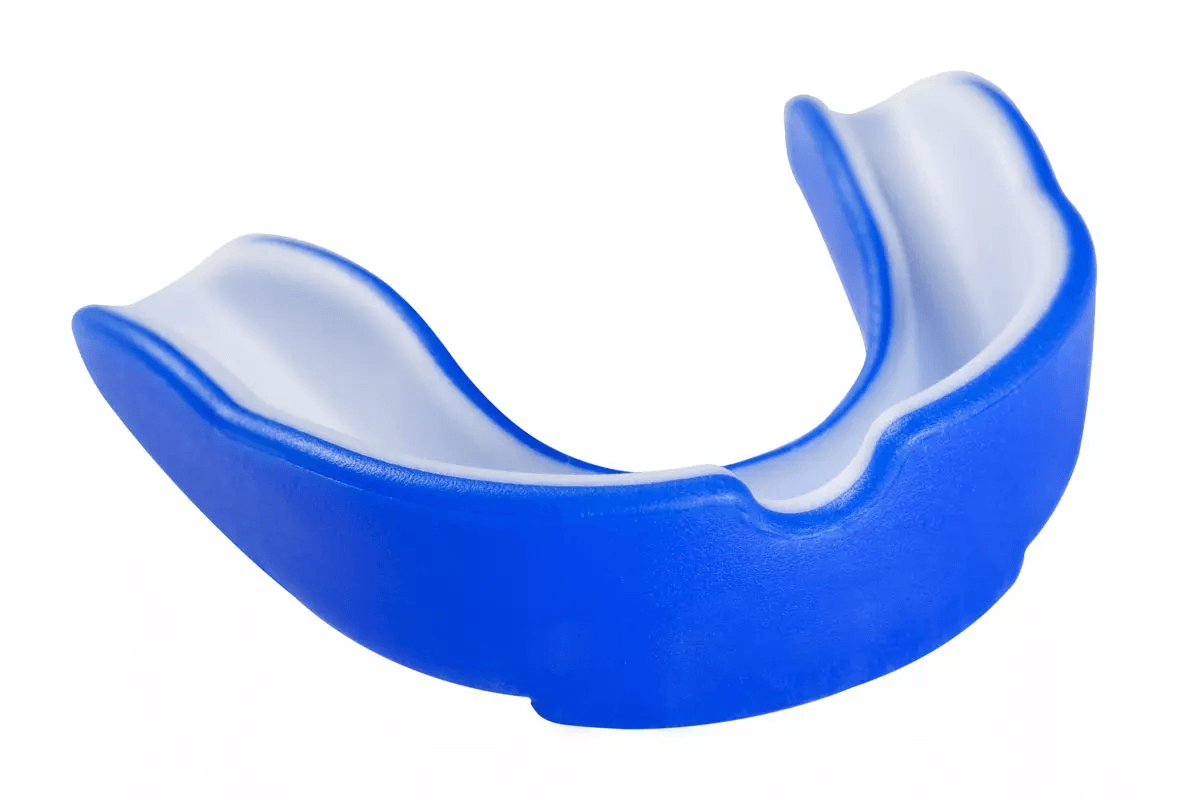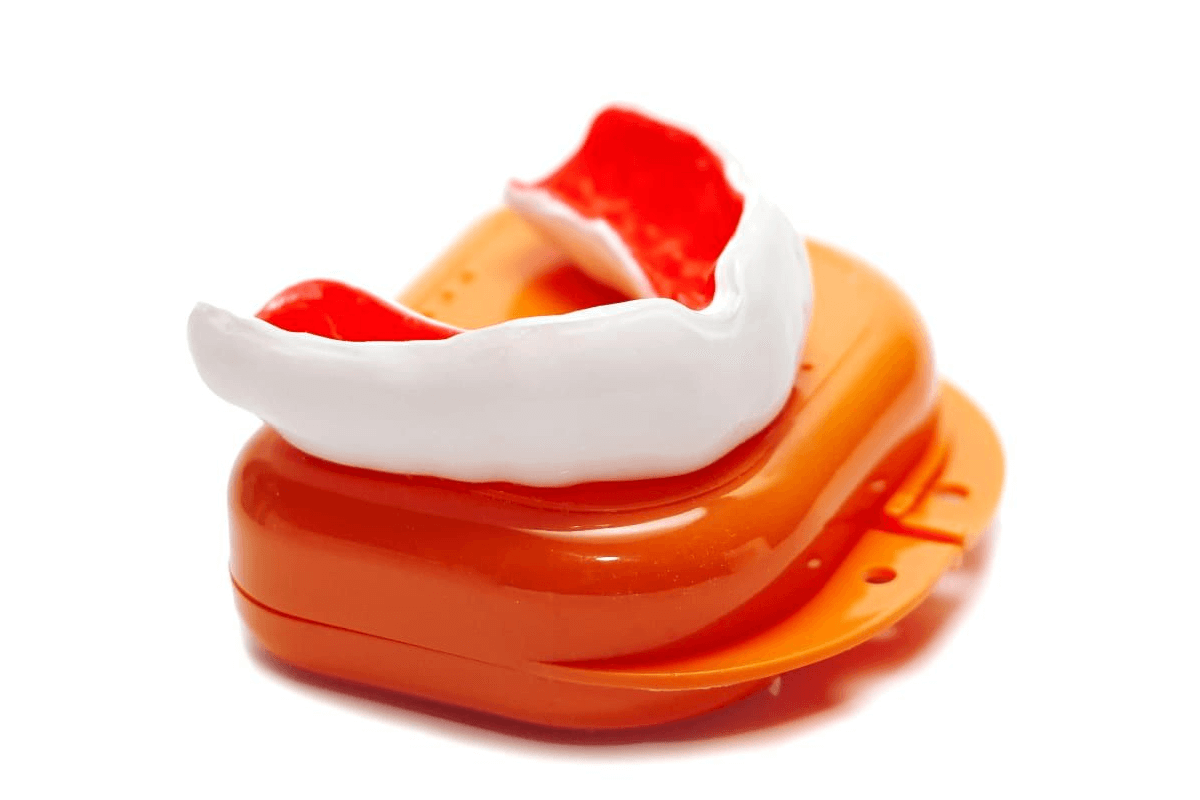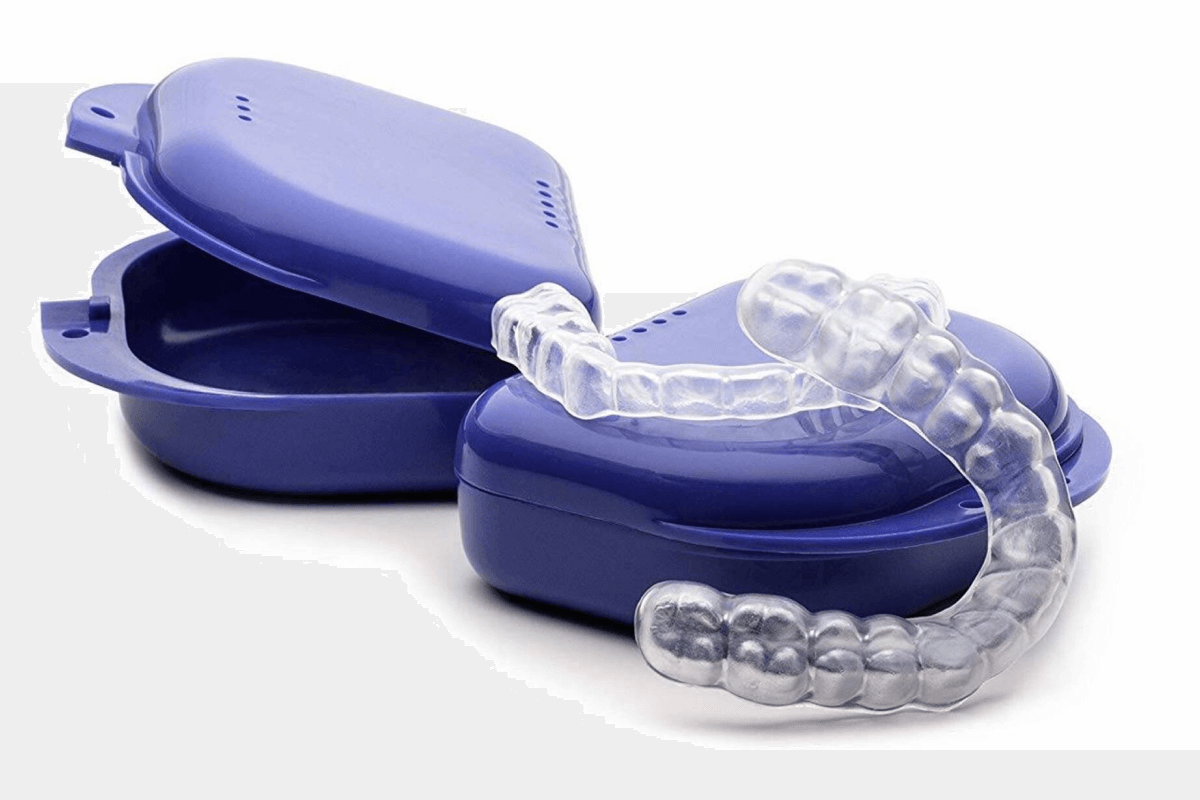HOW DO MOUTH GUARDS HELP IN TEETH GRINDING?
Mouthguards safeguard teeth against crushing or clenching when you rest or play sports. They also reduce snoring and ease sleep apnea. However, it is essential to note that not all mouthguards are made equal. There are three primary kinds, depending on your particular situation. Read on to discover the different types and the signs of teeth grinding.
Continue reading. 👇
WHAT EXACTLY IS A MOUTHGUARD AND IT’S WORKING?
A mouthguard is a device you wear over your teeth during rest at night. The mouthguard protects your teeth through an obstruction between your lower and upper teeth. When your jaw is clenched late at night, the mouthguard will force the tightening to stop grinding. The mouthguard helps protect your teeth by blocking them from grinding together at night. It will also reduce jaw and facial discomfort by preventing your jaw from grinding while asleep.
WHAT IS BRUXISM?
Patients with bruxism subconsciously grind or clench their teeth. Most people with the disorder grind their teeth at night, a condition called sleep bruxism, and grind their teeth throughout the day, a condition called awake bruxism.
SIGNS OF TEETH GRINDING:
People who suffer from bruxism typically do not even realize they are grinding their teeth until they begin experiencing symptoms, for example:
- Loss of enamel, the tough protective layer that covers the teeth.
- Teeth chipped or cracked.
- Tense jaw and facial muscles.
- Pain in the face.
- Teeth are sensitive to excessive pressure.
- Headaches.
- Dislocation or “locking” of the jaw.
- Popping or clicking noises in the temporomandibular joints (TMJ).
- Indentation marks on the tongue.
- The inside of their cheeks.
- Smooth, flat areas on the bite surfaces of teeth, called wear facets, result from teeth rubbing frequently.
Many people suffering from bruxism blame the symptoms on other health issues or conditions, which can delay proper treatment. Dentists can provide an accurate diagnosis and recommend the most effective method of treating these signs. In many instances, treatment involves wearing mouthguards.
WHY IS IT IMPORTANT TO GET A MOUTH GUARD FOR JAW CLENCHING?
If you ignore your bruxism signs, it could result in serious dental issues requiring costly treatments. For instance, bruxism can be the leading cause of tooth canals. People grinding their teeth suffer as much as 2 millimetres of enamel loss by the time they reach their 20s, which boosts the risk of developing cavities.
Purchasing lower-cost mouthguards online or in a nearby drug store is possible, but there are many reasons to pay extra for a custom-fitted mouthguard from a dentist:
- A custom-fit night guard can ensure that the jaw remains in a good position, which could relieve TMJ discomfort.
- A custom-fitted night guard will fit properly, making it more comfortable and not slipping out in the dark.
- Custom-designed night guards are constructed of superior materials than generic models, meaning they generally last longer.
WHAT ARE THE BENEFITS OF WEARING A MOUTHGUARD?
Protecting your mouth with a mouthguard when participating in contact sports and other sporting activities can help you avoid the following:
- Teeth chipped.
- Knocked-out teeth.
- Injuries to the dental pulp.
- Injuries to the soft tissues of your gums, lips, and cheeks.
Wearing a mouthguard when you sleep could lower your risk of:
- The wear and tear can result from grinding or clenching your teeth.
- Snoring.
- Jaw discomfort, headaches, facial pain, and other signs of TMJ disorders.
- Sleep apnea and its related issues, like the increased risk of high blood pressure or daytime fatigue.
TYPES OF MOUTHGUARDS:
There are three kinds of mouthguards:
1. STOCK MOUTH PROTECTORS:
These mouthguards are already made and have a ready-to-wear design. They’re cheap and available at various sporting goods shops and department stores. However, nothing can be done to alter their shape, so they’re large, making breathing and talking difficult and adding only a tiny amount of protection. Dentists do not recommend them.
2. BOIL-AND-BITE MOUTHGUARDS:
This type is available in many retail sporting goods stores. It could be more comfortable than standard mouth protectors. The “boil-and-bite” mouth guard is made of thermoplastic material. It is immersed in hot water for a few minutes to relax, after which it is placed inside the mouth and shaped on the jaws with pressure from the tongue and fingers.
3. CUSTOM-FITTED MOUTH PROTECTORS:
These are designed by hand according to your dentist’s directions and manufactured in a dental clinic or well-qualified laboratory. The dentist will create an impression of your mouth, and a mouthguard is then made over the image using a specific material. Because of this special material and the additional time and effort involved in creating a custom-made guard for your mouth, it is more costly than others, yet it is the most comfortable and secure.
Most mouthguards protect upper teeth, but the dentist can create a mouthguard for the lower teeth in certain instances (such as if you wear braces or a fixed dental appliance placed on your jaw’s lower side). Your dentist can recommend the perfect mouthguard for your needs. A well-designed mouthguard must be comfortable, resistant to tears, last long, and easy to clean. It should also not affect your speech or breathing. If you grind your teeth late at night, a specific dental device, a mouth guard known as a nighttime bite splint or bite plate, can be designed to protect your teeth from injury.
HOW TO CARE FOR A MOUTH GUARD?
For oral hygiene guard:
- To store or transport the mouth guard, put it into an affixed, perforated container. This lets air circulate and reduces the risk of damage. Store the mouthguard in clean, fresh water if it is made of acrylic.
- To avoid bending its shape, guard your mouth from extreme temperatures, such as hot surfaces, water, or direct sunlight.
- Check the mouthguard periodically to see if it is wearing. If you notice cracks or tears, or if it gets loose or causes pain, you should replace it.
- Keep your mouthguard away from pets.
- Bring your mouthguard to every regular dental appointment so the dental practitioner can examine it.
WHO MOST COMMONLY SUFFERS FROM TEETH GRINDING AND CLENCHING?
Dentists cannot determine a specific demographic responsible for this issue, so it’s essential to schedule appointments regularly. Dentists can check for indications of the problem. However, clenching is often seen in people who already suffer from poor oral health, specifically youngsters and adults who experience stress throughout the day.
THE FINAL LINE:
Whether you’re involved in sports or have insomnia, wearing a mouthguard could protect you and help you get a restful night’s rest. If you need help determining which type of mouthguard you require, discuss it with your dentist. They can collaborate with you to design a custom-made mouthguard or suggest an over-the-counter device.














